10 Indoor Plants Best For Your Health, According To Research
If you find your living spaces taken over by lush indoor houseplants, spreading their green charm across bookshelves, side tables, and kitchen counters, you're in good company. Over the past few years, the popularity of these leafy companions has soared. While these green beauties undeniably add a touch of charm to your surroundings, experts suggest that they might also be contributing to your well-being.
Plant therapy has long been used by naturopathic doctors, and spending time around plants has a "whole-person positive impact," according to Amy Rothenberg, N.D., president of the Massachusetts Society of Naturopathic Doctors.
Plants in your bedroom may improve your sleep quality, while greenery in your kitchen might help lighten up your space if you don't have a window. While any plant is beneficial to your mental health and emotional well-being, here are some of the experts' best picks.
Plenty of these wondrous plants are easy to take care of, so you can enjoy their benefits in peace.
1. Spider Plant
Spider plants, also known scientifically as Chlorophytum comosum, are wonderful companions for those of us who lack a green thumb. They can thrive with little effort on your side. The University of Wisconsin-Madison Division of Extension describes these plants as having "small plantlets produced on long trailing stems that vaguely resemble spiders," which gives them their unusual name.
But there's more to them than just their unique appearance. Spider plants are natural air purifiers. Even NASA took a keen interest in their air-purifying abilities. Researchers from NASA examined the leaves, soil, roots, and small microbes found in numerous houseplants. What did they discover?
Plants, including our friendly neighborhood spider plant, have an amazing ability to filter the air and reduce dangerous pollutants. Over 24 hours, spider plants were able to remove 95% of hazardous formaldehyde from the air within a sealed Plexiglas container, according to their research. As a result, they are not only simple to maintain, but they also work continuously to keep your interior air fresh and clean.

2. Peace Lily
The name "peace lily" brings up feelings of tranquility. According to Trevor Cates, N.D., a naturopathic doctor in Park City, Utah, and author of Clean Skin From Within, these tough plants "flower and are aesthetically pleasing" and may enhance your health over time. According to a 2022 study published in Applied Sciences, peace lilies have air-cleaning qualities and aid in the removal of carbon dioxide and volatile organic compounds (VOCs) from the air.
Peace lilies are long-lasting companions, enhancing your environment with stunning white blossoms that look like peace flags. They thrive in low light and are easy to maintain. Just remember, keep them out of reach of pets and children to avoid any mishaps.

3. Rubber Plants
Rubber plants, often known as rubber trees or Ficus elastica, are excellent houseplants. According to The Sill's brochures, they're generally easy to care for and only need to be watered once a week or so.
Research also shows that rubber plants have air-purifying characteristics. Just make sure to keep them away from pets and small children, as they're known to be highly dangerous if consumed.

4. Elephant Ear Plants
Cromer advises elephant ear plants if you want to spend more time with your houseplants. These are a category of tropical, perennial plants distinguished by their large, heart-shaped leaves. They require bright light and regular watering to keep the soil moist, and they can grow large and may require more room.
Some species have been cultivated for their edible starchy tubers, which create a staple meal in some tropical locations. The leaves have been used medicinally for treating bug stings.

5. Snake Plants
Widely known as "mother-in-law's tongues," the snake plant, or Sansevieria trifasciata, has tall, vertically growing leaves. They're both decorative and low-maintenance. According to HGTV experts, the plants only require watering when the soil is dry, can grow in any light, and "thrive on neglect."
The snake plant, which was included in the same extensive NASA research on indoor plants, has been shown to remove toxins from the air over time. So, not only are snake plants aesthetically pleasing and easy to care for, but they also contribute to healthier indoor air quality.

6. Ferns
In a recent 2022 study published in Applied Sciences, Boston ferns emerged as the top performers in air purification, effectively removing volatile organic compounds (VOCs) from the air.
These ferns not only clear the air but also make for lovely inside decor. However, it's worth noting that Boston ferns do require a bit more attention. They prefer consistently moist soil and flourish in medium-bright light conditions.

7. Pothos
Also known as devil's ivy or golden pothos is a classic houseplant. With vibrant heart-shaped leaves, ranging from solid green to marbled green and yellow. Scientifically known as Epipremnum pinnatum, Pothos are easy to cultivate, requiring nothing more than indirect sunlight and infrequent watering.
Furthermore, these adaptive plants are capable of getting rid of volatile organic compounds (VOCs) from the air, hence improving the quality of your interior environment.

8. English Ivy
English ivy, also known as Hedera helix, is a useful plant that has been proven to reduce carbon dioxide, formaldehyde, and pollutants in the surroundings. They can be cultivated both outside and inside.
According to Clemson University Cooperative Extension, ivy grows well in hanging baskets or pots as a houseplant and can be persuaded to grow along a trellis or shape. They thrive in direct sunlight and must be thoroughly watered after the soil dries out.

9. Succulents and Cacti
Succulents and cacti are a diverse group of plants known for their unique and striking appearances, as well as their ability to store water in their leaves, stems, or roots. Cromer says, succulents and cacti “thrive on little to no care.”
These plants are resilient to drought, which means they only require watering when the soil is totally dry. Some varieties, such as the jade plant, can raise the humidity level in a room. Aloe vera plants, in particular, have healthcare characteristics and are helpful in the healing of cuts, burns, and other skin conditions.

10. Herbs
Small potted herbs aren't only cute additions to your kitchen; they can also be your culinary muse, inspiring you to cook more regularly and prepare healthier meals. Growing your basil, parsley, or mint not only adds a personal touch to your food but also saves you money over buying them at the market.
Additionally, several herbs, such as chamomile and lavender, have drawn attention for their ability to alleviate anxiety, as per Mayo Clinic specialists. Herbs are rich in essential vitamins, minerals, and antioxidants, making them an excellent addition to your lifestyle. Greenery in the kitchen is good for flavor as well as your well-being.




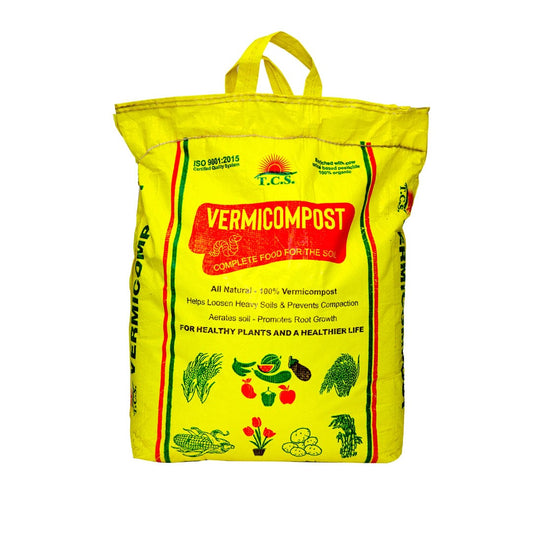

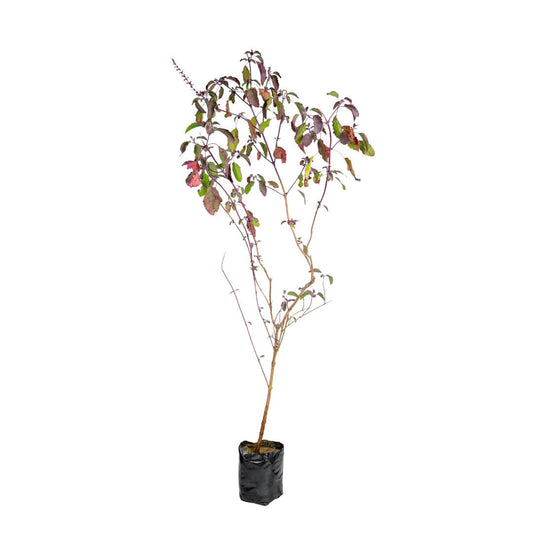

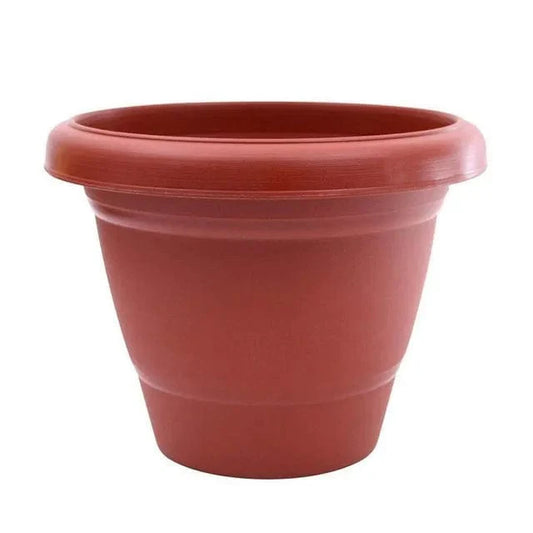



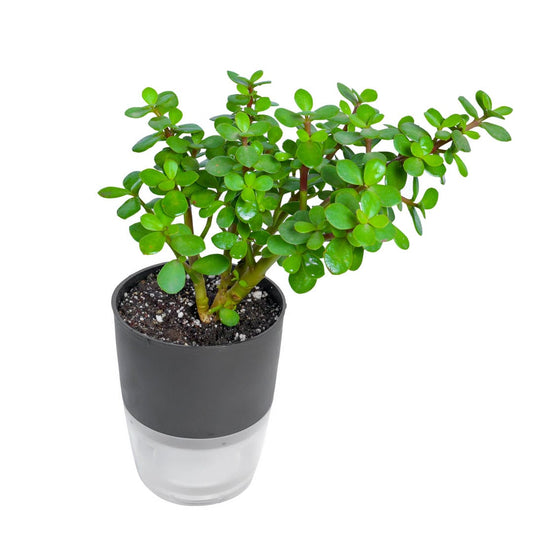

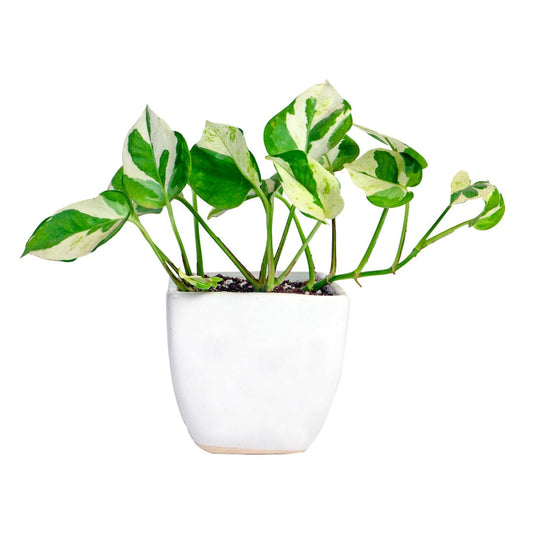

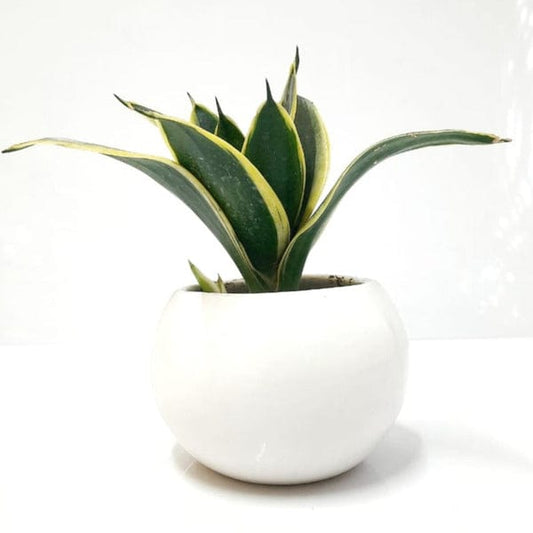

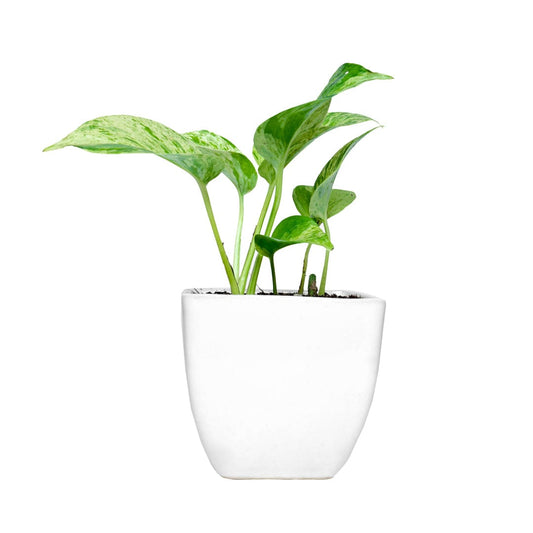

Leave a comment
Please note, comments need to be approved before they are published.